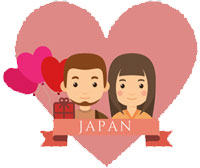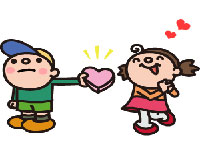Japan | What’s New | Explore Global Celebrations | View Our Site Guide | Newsletter


In Japan, Valentine's Day unfolds in a way that surprises many Westerners. On February 14th, it’s women who give chocolates — not just to romantic partners, but also to male colleagues and friends. This tradition is rooted in post-WWII marketing and has since evolved into a nuanced social ritual.
There are two types of chocolates given:
- Giri-choco (義理チョコ): “Obligation chocolate” for male coworkers, managers, or acquaintances to show appreciation and politeness.
- Honmei-choco (本命チョコ): “True feeling chocolate” reserved for someone special — a boyfriend, spouse, or romantic interest.
One month later on March 14th, Japan celebrates White Day — a uniquely Japanese creation where men reciprocate. They return gifts to the women who gave them chocolates, often with white-themed sweets like marshmallows, cookies, or expensive candies. There’s even a social expectation that White Day gifts exceed the value of the original chocolate — known as “sanbai gaeshi,” or “triple return.”
This two-part exchange offers more than sweets — it reflects the values of reciprocity, social harmony, and awareness of role and timing. For global companies operating in Japan, understanding these customs can shed light on deeper relationship dynamics that carry over into business settings as well.
Contact us today to explore how our training and coaching solutions can equip your team to succeed — whether you're tackling global initiatives or navigating complex cross-cultural challenges. We welcome the opportunity to support your goals — across cultures, across borders, and across the global landscape.
